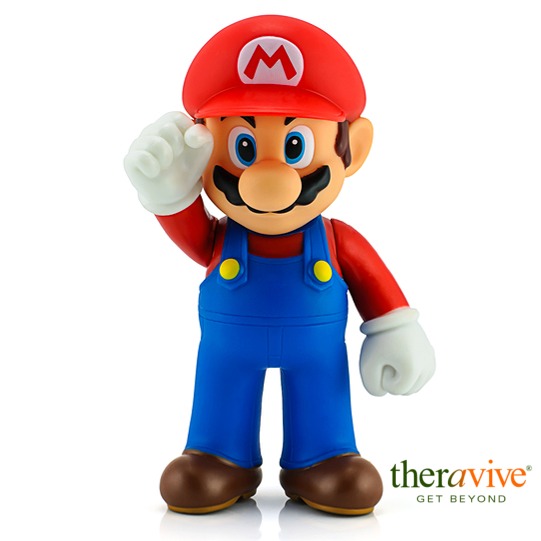 The same day that Satoru Iwata, president of Nintendo for more than a decade, passed away from a long growing tumor, there was a rainbow seen over the headquarters of the gaming giant’s headquarters in Kyoto. This symbol served as an appropriate tribute to the man who ushered in an age of cross cultural, cross national and cross age interaction with technology. Iwata had a vision of future with video games that made them accessible all kinds of people, especially those who had never felt comfortable with them before.
The same day that Satoru Iwata, president of Nintendo for more than a decade, passed away from a long growing tumor, there was a rainbow seen over the headquarters of the gaming giant’s headquarters in Kyoto. This symbol served as an appropriate tribute to the man who ushered in an age of cross cultural, cross national and cross age interaction with technology. Iwata had a vision of future with video games that made them accessible all kinds of people, especially those who had never felt comfortable with them before.
His Vision
Iwata will be remembered as more than just a man who made video games - his vision for Nintendo changed the way that we interact with technology, and most agree that it changed it for the better. Before his reign over Nintendo, video games were seen as the bastion of young people, or adults who had fallen in love with them as children. Video game culture was held in a negative light in most circles, seen as a driver of sedentary behavior and escapism. The reason for this, Iwata saw, was not because of the inherent nature of video games but rather because of the limitations that previous technologies placed on them. He believed that radically redesigning the interface in which video games were played would dramatically change their accessibility. He was right.
Changes Under Iwata’s Tenure
Taking over as CEO in 2002 at just 42 years old, Iwata offered a radical departure in style and substance from his predecessor Hiroshi Yamauchi, who had overseen the transformation of Nintendo from a playing card company to a video game pioneer during his tenure beginning in 1949 (ten years before Iwata was born). Nintendo had seen a dramatic rise in popularity, taking it to the level of cultural icon on the lines with Disney or Coca Cola in terms of social penetration. More than just a gaming company, Nintendo during the 20th century became a touchstone for pop culture and storytelling, as it defined the way that stories were told in video games and influenced society with it’s characters from Mario to Zelda to Pokemon. It’s difficult to underestimate the level to which Nintendo helped to mold generations of children with its games beginning with it’s explosion in growth in the 1980’s.
What had always made Nintendo’s brand so compelling was not just the interface, but the care with which it told stories and the variety of interactions that it sought with its users. Nintendo launched an interactive robot in the 1980’s, followed by a glove and it’s handheld gaming systems. These were all meant to enhance the way that players played, and to further immerse them in the gaming environment. Pioneering new modes of interaction has always been at the center of Nintendo’s vision.
Iwata’s vision took this same base of engaging outside of the box to a whole new level. He oversaw the rolling out of the Wii gaming system with it’s wireless remote control technology and heavy emphasis on gaming as a form of exercise. Thanks to his understanding of the power of video games, seniors who had never had an interest in gaming were suddenly becoming players. Wii Fit technology allowed users to exercise and get healthy with their video gaming console and to track their progress. In addition, the Wii allowed for online connections between players across the world. And finally, Iwata envisioned the Wii console as the center of family entertainment, allowing families to access content from the news and weather to movies, television and the internet.
Video Games as Therapy
Decades of bad press about video games is beginning to be transformed as technology has changed and as research has been conducted about what it means to play. Especially given the pervasiveness that has happened since Saturo Iwata changed the face of video game interaction, there are increasingly abundant opportunities to use video games as part of psychotherapy. Ceranoglu (2010) offers some insight into how video games are being utilized for therapeutic purposes. Video games can facilitate therapeutic relationships, and can be used to evaluate cognitive skills, to clarify conflicts and to help patients to become more comfortable and enthusiastic about participation in therapy.
Additional research by Bourgonjon and Soetaert (2013) indicates that video games play a role in cultivating citizenship practices. Video games amount to role playing, much in the same way that literature and theatre provide roadmaps for social practices. The difference in video games is the first person perspective, which offers an even richer experience of working out cultural practices and societal expectations. This research shows that video games can actually generate empowerment and foster good citizenship practices in many situations. Saturo Iwata’s Legacy This man’s legacy is visible in all kinds of technology, and in the way that people interact with each other. His Wii innovation has been integrated into elder care facilities, gyms, preschools and of course homes across the world. Iwata redefined what it meant to play video games, taking them from a sedentary and solitary activity to an active and integrated activity that invites the whole family to participate and facilitates virtual connections with others. New research and innovation in psychology points to the fact that his vision was well founded, and that video games do have the power to foster a better world.
References
Bourgonjon, J., & Soetaert, R. (2013). Video games and citizenship. CLCWeb: Comparative Literature and Culture, 15(3), 8.
Byford, S. (2015). Nintendo CEO Satoru Iwata is dead at 55. The Verge. July 12, 2015. Retrieved from http://www.theverge.com/2015/7/12/8940067/satoru-iwata-nintendo-dies
Ceranoglu, T. A. (2010). Video games in psychotherapy. Review of General Psychology, 14(2), 141-146.
About the Author

Autumn Robinson, MA, PhD Candidate
Autumn Robinson is a writer and PhD candidate who lives in the beautiful Blue Ridge Mountains of North Carolina with her husband, three young boys and daughter with special needs. She is a former special education teacher who believes that all people deserve to be treated with dignity and respect. Autumn is the Digital Manager for Vestidd, an innovative cloud based program that helps families with special needs to organize and manage their often complex responsibilities.